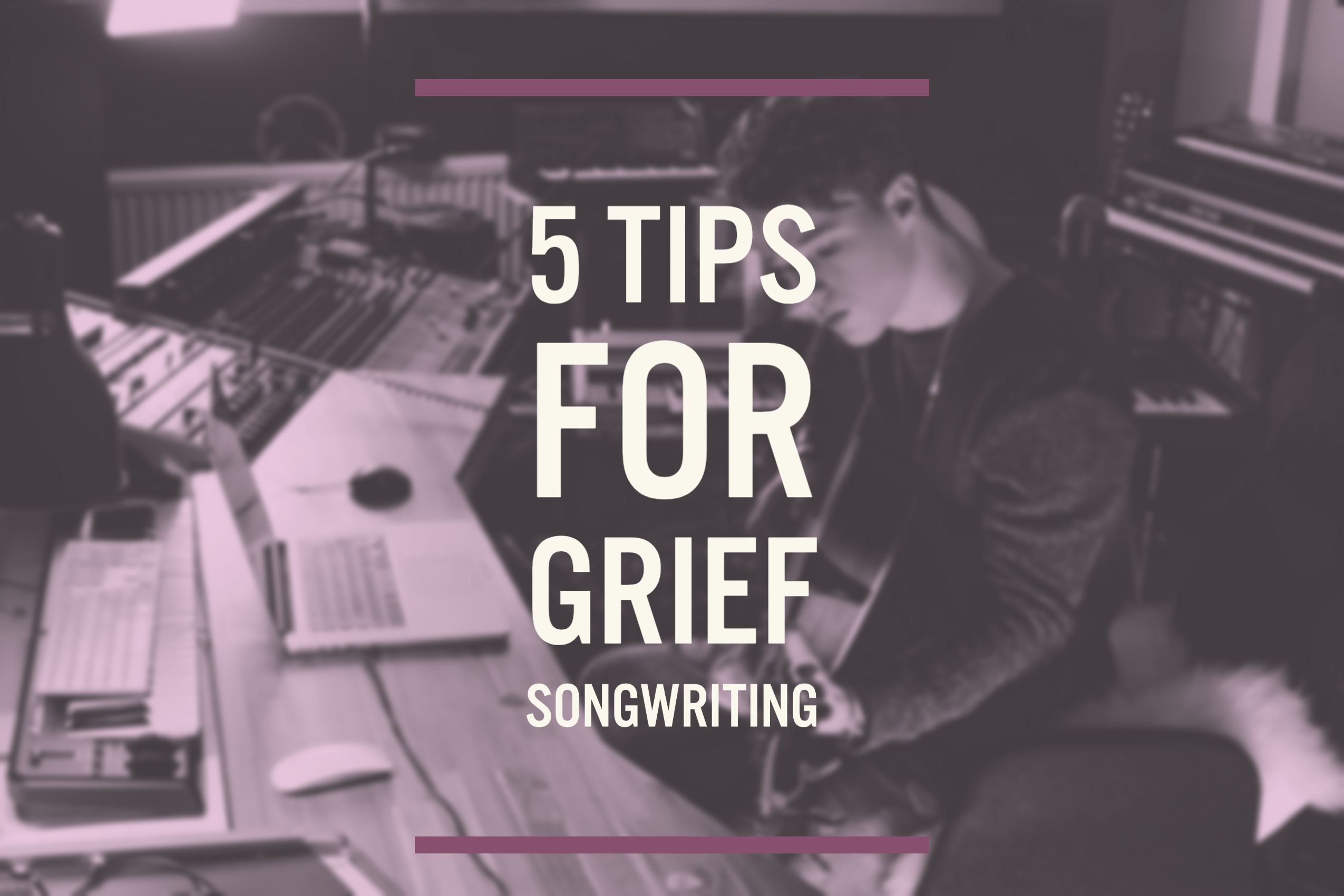
By Miki Speer
When a songwriter’s heart is broken, songs sometimes begin to pour out naturally and grief is no exception. However, because the loss of someone we love can cut so deep, sometimes the words either don’t come out or nothing feels good enough. My mom died when I was 13. When I finally allowed myself to process that loss almost a decade later, I often felt like I swung between the two extremes of “I can’t write this down fast enough!” and “This song doesn’t do her / the experience justice.” Now that I have self-produced several songs for my fans regarding loss, I have 5 tips I would love to share with you if you want to begin to write about your grief.
1. Don’t try to fit all your grief emotions into one song.
Grief is messy, complicated, ever-changing, and filled with hundreds of memories. If you try to fit everything into 3 minutes and 30 seconds, you’ll perpetually be frustrated. Try to pick one element of your journey and zero in on that (i.e. your first Christmas without them).
2. Don’t use the song(s) as a “goal post'' for your grieving journey.
I once met someone who seemed to approach writing a song about the loss of his father like a hurdle he had to overcome as if to say, “If I can just write the perfect song, then I will be that much closer to being done grieving.” That’s a lot of pressure for a song! Remind yourself that songwriting can help you process a loss, but it will never “fix” your pain (no matter how good the song is!).
3. Decide what perspective you want to sing from.
Even though most songs are sung from the perspective of the artist grieving the person gone (“You Should Be Here” by Cole Swindell or my song, “My Heart Still Remembers”), I have found that having a song come from the perspective of the person who passed is an extremely powerful tool. My song, “Light a Candle For Me” continues to be the one grief organizations request me to play because it cuts so deep. Consider asking yourself, “What would my loved one want me to hear right now?”
4. Get Granular!
As with all songwriting, vague statements don’t seem to facilitate healing like a specific picture, especially if the song is for your own use. In my workbook, “My Heart Still Remembers” (yes, same title as the song) I have a lot of questions you can use to being to spark ideas for what is specific to your loss.
Here are some examples:
- What clothes would they typically wear?
- What did it feel like to hug them?
- Did they have a signature scent?
- What was their favorite song, tv show, or movie?
5. Don’t just focus on the past.
- How would they make you feel special (and how can you keep that going)?
- What lesson did they teach you?
- What specific events are coming up that you wish they could be part of?
- How did they make the world a better place?





